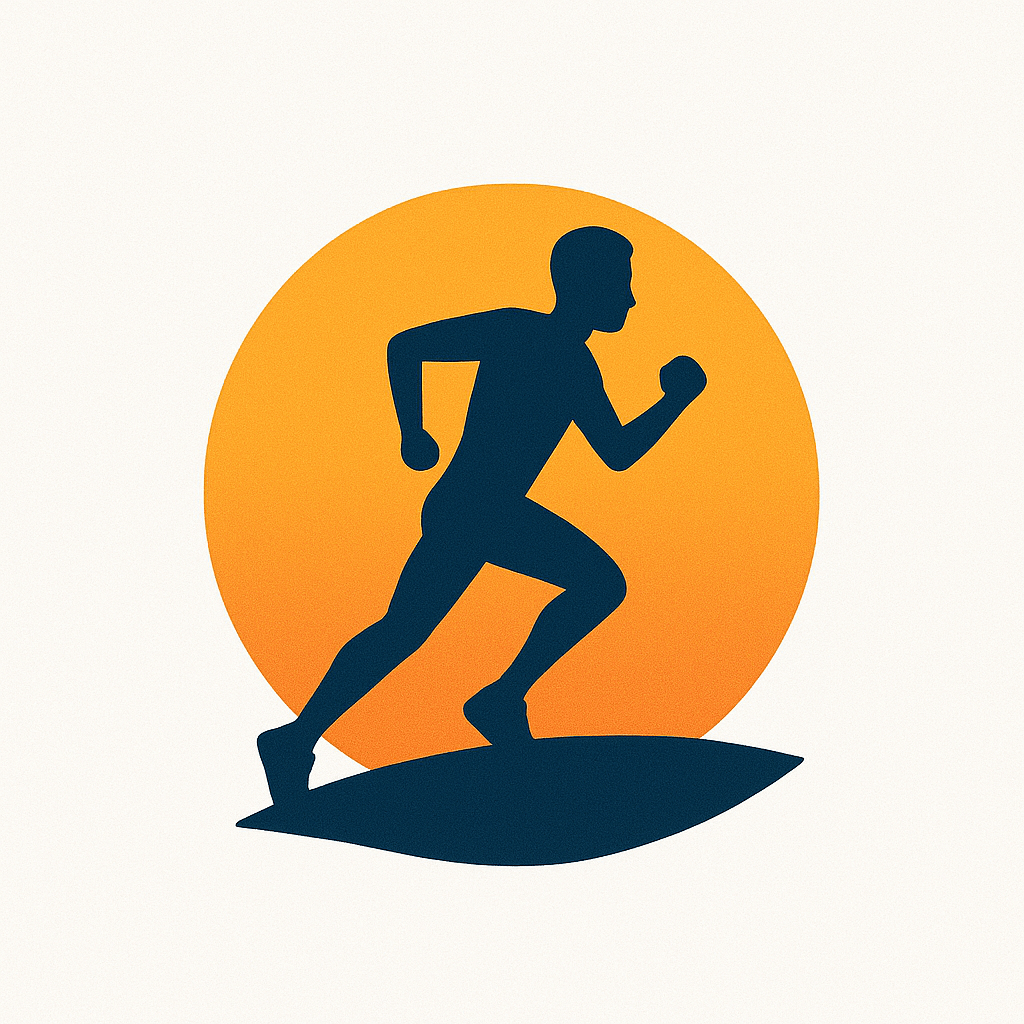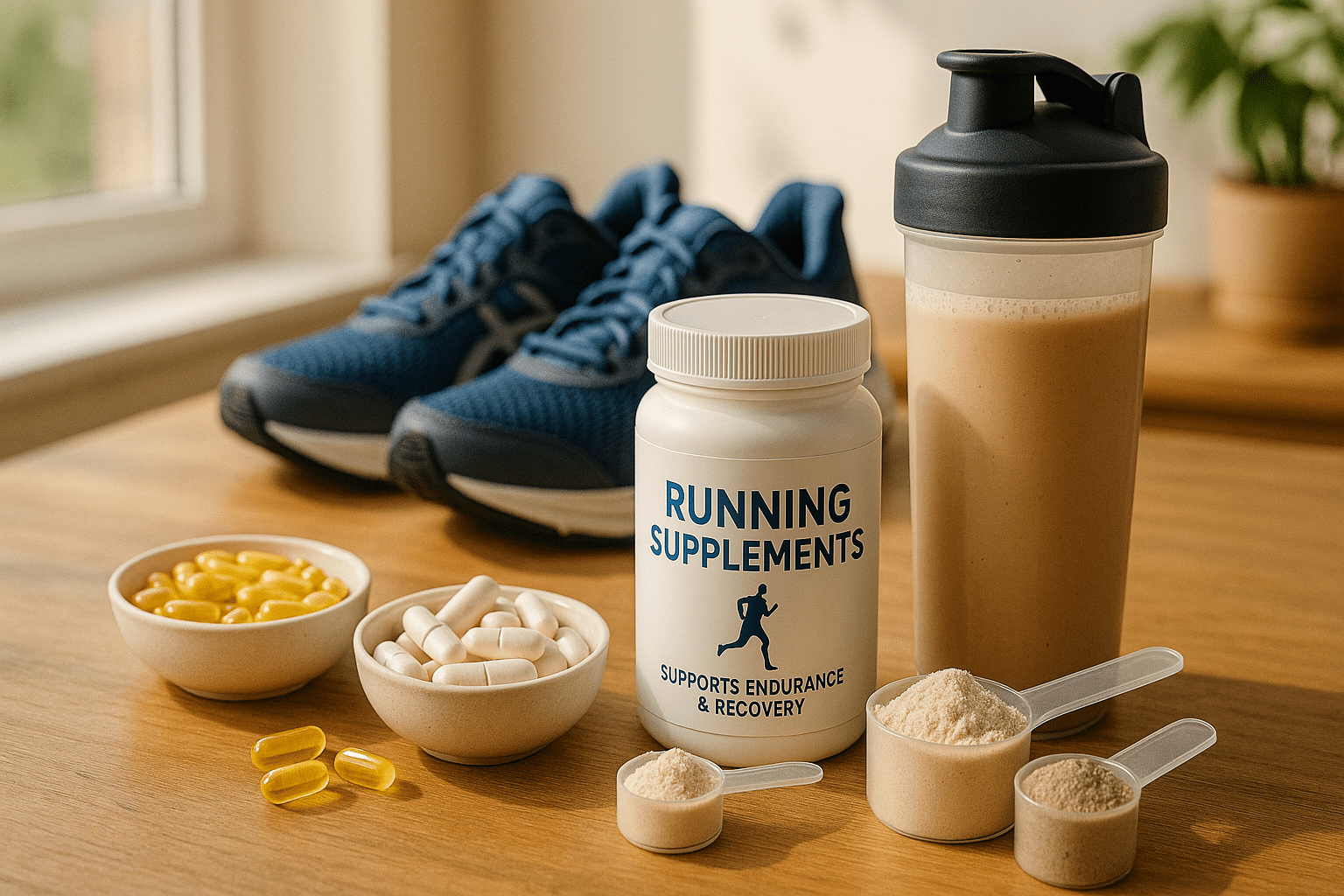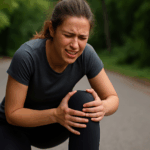Healing Smarter, Running Stronger
Every runner eventually hits a wall—not the psychological kind at mile 20, but the physical wall where your body says, “Enough.”
Maybe it’s a nagging soreness in your knee. Maybe your muscles feel like bricks after a long run. Or maybe you’re recovering from a more serious injury and wondering, What can I do to heal faster?
Recovery is part of the training equation, not a break from it. And while nothing replaces good sleep, smart training, and a solid diet, certain supplements can help support your body’s natural repair processes.
Important: This article is for informational purposes only and is not intended to be medical advice. Always talk to your doctor before starting any supplement. Everyone’s body is different, and what works for one runner might not work—or even be safe—for another.
Why Recovery Is Just as Important as Training
The Hidden Cost of Ignoring Recovery
Running breaks your body down on a microscopic level. Without proper recovery, your performance plateaus—or worse, you get injured. Overtraining, chronic soreness, and fatigue can sideline even the most dedicated runner.
How Nutrition and Supplements Can Support Healing
When you fuel your body correctly, you give it the raw materials to repair muscles, reduce inflammation, and rebuild stronger. Supplements aren’t shortcuts—they’re support tools. They fill in gaps where your diet or routine might fall short.
Important Disclaimer About Supplements
Before we dive in, let’s be clear: This is not medical advice. Supplements affect people differently, can interact with medications, and aren’t always regulated for purity or effectiveness.
Always:
- Talk to your doctor or a licensed dietitian.
- Choose supplements that are third-party tested.
- Listen to your body and track how you feel.
Top Supplements That Runners Use for Recovery
Omega-3 Fatty Acids – Reducing Inflammation
Found in fish oil, these healthy fats can help reduce joint pain and systemic inflammation—key for post-run recovery. Some studies also suggest they may enhance muscle repair.
Natural sources: Fatty fish (like salmon), walnuts, flaxseeds.
Magnesium – For Muscle Relaxation and Cramp Relief
Magnesium supports nerve function, muscle contraction, and energy production. It’s also known to ease cramps and improve sleep—two big wins for runners.
Forms to look for: Magnesium glycinate or citrate for better absorption.
Collagen & Vitamin C – Supporting Joint and Tendon Health
Collagen, especially when paired with vitamin C, may help with tendon repair and joint stability—critical for runners dealing with knee, ankle, or Achilles issues.
Pro tip: Take it 30–60 minutes before your run for targeted benefit, as some studies suggest.
Protein Powders – Rebuilding Muscle After Stress
Your muscles need amino acids after a tough workout. A high-quality protein shake within 30 minutes post-run can help jump-start muscle recovery.
Best picks: Whey (fast-absorbing), pea or hemp (for plant-based options).
Branched-Chain Amino Acids (BCAAs) – Reducing Muscle Breakdown
BCAAs (leucine, isoleucine, valine) may reduce muscle soreness and promote protein synthesis, particularly if you’re training hard or fasted.
Note: If you’re already getting enough protein, BCAAs might not add much.
Turmeric/Curcumin – Natural Anti-Inflammatory Support
Curcumin, the active compound in turmeric, has been shown to reduce inflammation and muscle damage. Look for formulas with black pepper (piperine) for enhanced absorption.
Bonus: It’s a natural, plant-based alternative to NSAIDs like ibuprofen.
Glucosamine & Chondroitin – Joint Support for Older or High-Mileage Runners
These compounds may help maintain cartilage and alleviate joint discomfort. Results vary, but some runners swear by them for long-term knee health.
Best for: Masters runners or those with a history of joint wear and tear.
Vitamin D & Calcium – For Bone Strength and Injury Prevention
Vitamin D helps absorb calcium, which strengthens bones—essential for runners, especially those with low sun exposure or a history of stress fractures.
Tip: Get your vitamin D levels tested before supplementing.
Electrolytes – Faster Rehydration, Faster Recovery
Running depletes sodium, potassium, and magnesium—especially in the heat. Replenishing these can prevent cramps, fatigue, and help you bounce back faster.
Best forms: Electrolyte powders or tablets with no added sugars or dyes.
What to Look for When Choosing Supplements
Third-Party Testing and Quality Assurance
Look for certifications from NSF, USP, or Informed-Sport. These ensure what’s on the label is actually in the bottle.
Whole-Food-Based vs. Synthetic
Supplements made from whole food sources may be better absorbed and less likely to cause side effects. But quality varies widely.
Dosage Matters: Don’t Overdo It
More is not better. High doses can be harmful, especially with fat-soluble vitamins like D or A. Stick to recommended amounts unless directed by a health professional.
Potential Side Effects and Medication Interactions
Even natural supplements can cause problems. For example, turmeric can thin blood. Magnesium can cause digestive issues. Always research or speak with a professional first.
Whole Foods First: Supplements Are Just the Backup Plan
No pill or powder can replace a well-balanced, nutrient-dense diet. Focus on eating whole foods: leafy greens, lean protein, complex carbs, healthy fats.
Supplements should enhance—not replace—the fundamentals. Think of them as reinforcements, not the front line.
Heal Smart, Run Strong
Running is about more than speed or distance. It’s about resilience. And resilience comes from treating your body like a teammate, not a machine.
Whether you’re bouncing back from an injury or just feeling sore after a long week, the right nutritional support can help your body recover and thrive.
Just remember: healing is personal. What works for others might not work for you. So be smart. Be kind to your body. And always consult your healthcare provider before adding any supplements to your routine.
Because when you recover well, you run well. And your next breakthrough run might be closer than you think.






Leave a Reply